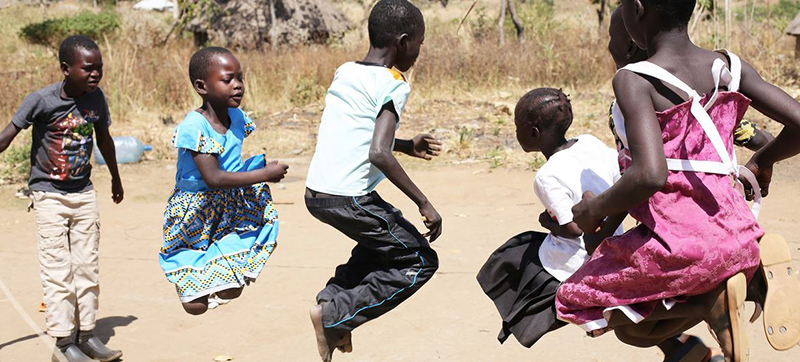 Population
Population
‘Milestone for humanity’ as UN celebrates 8 billionth birth
New York: The Day of 8 Billion, officially marked on Tuesday, is a milestone moment for human longevity, according to the UN Population Fund (UNFPA), “signalling major improvements in public health”, but it also comes with warnings of worsening economic inequality and environmental damage.
While fewer risks and increased life expectancy are to be lauded, the moment is also a clarion call to look beyond the numbers, and for governments to share responsibility for protect people and the planet - starting with the most vulnerable.
“Unless we bridge the yawning chasm between the global haves and have-nots, we are setting ourselves up for an eight billion-strong world filled with tensions and mistrust, crisis and conflict”, warned UN Secretary-General António Guterres.
Demographically diverse world
As the world’s population will continue to grow to around 10.4 billion in the 2080s, overall growth rate is slowing down, according to UNFPA.
However, the planet is more demographically diverse than ever before, with individual countries and regions facing starkly different population trends in growth and decline.
For example, two-thirds of today’s global population live where lifetime fertility is below 2.1 births per woman, while at the same time, population growth continues to surge in the world’s poorest countries – most of which are in sub-Saharan Africa.
“A world of 8 billion is a milestone for humanity – the result of longer lifespans, reductions in poverty, and declining maternal and childhood mortality. Yet, focusing on numbers alone distracts us from the real challenge we face: Securing a world in which progress can be enjoyed equally and sustainably,” said UNFPA chief Natalia Kanem.
No ‘one-size-fits-all’ solution
Whether populations are growing or shrinking, every country must be equipped to provide its citizens with a good quality of life and lift up the most marginalized.
“We cannot rely on one-size-fits-all solutions in a world in which the median age is 41 in Europe, compared to 17 in sub-Saharan Africa”, continued Ms. Kanem.
“To succeed, all population policies must have reproductive rights at their core, invest in people and planet, and be based on solid data”.
Complex linkages
While the day represents a success story for humanity, it also raises concerns over links between population growth, poverty, climate change and achieving the Sustainable Development Goals (SDGs).
Rapid population growth makes eradicating poverty, combatting hunger and malnutrition, and increasing the coverage of health and education systems, more difficult.
Conversely, meeting the SDGs, especially those related to health, education and gender equality, will contribute to slowing global population growth.
And while several decades of slower population growth could help to mitigate environmental degradation, conflating population growth with a rise in greenhouse gas emissions, ignores the fact that countries with the highest consumption and emissions rates are those where population growth is already slow or even negative.
“We must accelerate our efforts to meet the objectives of the Paris Agreement as well as achieve the SDGs”, said Li Junhua, who heads up the Department of Economic and Social Affairs (DESA).
Meanwhile, most of the world’s population growth is concentrated among the poorest countries, which have significantly lower emissions rates but are likely to suffer disproportionately from the effects of climate change.
“We need a rapid decoupling of economic activity from the current over-reliance on fossil-fuel energy, as well as greater efficiency in the use of those resources, and we need to make this a just and inclusive transition that supports those left furthest behind”, added Mr. Li.
A future built on rights
To usher in a world in which all eight billion people can thrive, the UN agency underscored the need to mitigate global challenges and achieve the SDGs – all while prioritizing human rights.
This requires increased investment from Member States and donor Governments in policies and programmes to make the world safer, more sustainable and more inclusive.
By achieving the SDGs, delivering human rights and leaving no one behind, we can usher in a world where all eight billion people can thrive, said UNFPA.
Support Our Journalism
We cannot do without you.. your contribution supports unbiased journalism
IBNS is not driven by any ism- not wokeism, not racism, not skewed secularism, not hyper right-wing or left liberal ideals, nor by any hardline religious beliefs or hyper nationalism. We want to serve you good old objective news, as they are. We do not judge or preach. We let people decide for themselves. We only try to present factual and well-sourced news.







